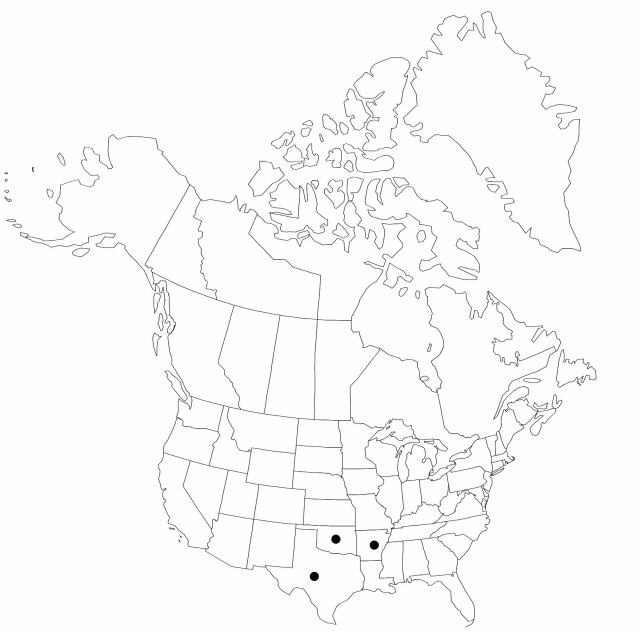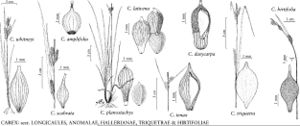Difference between revisions of "Carex planostachys"
Suppl. Riedgräs., 138, plate 35. 1844.
imported>Volume Importer |
imported>Volume Importer |
||
| Line 50: | Line 50: | ||
|publication year=1844 | |publication year=1844 | ||
|special status=Illustrated | |special status=Illustrated | ||
| − | |source xml=https:// | + | |source xml=https://bitbucket.org/aafc-mbb/fna-data-curation/src/2e0870ddd59836b60bcf96646a41e87ea5a5943a/coarse_grained_fna_xml/V23/V23_904.xml |
|genus=Carex | |genus=Carex | ||
|section=Carex sect. Hallerianae | |section=Carex sect. Hallerianae | ||
Latest revision as of 20:43, 5 November 2020
Plants loosely cespitose; rhizomes stout. Culms to 30 cm, short and long stems on same plant, scabrous. Leaf blades V-shaped in cross section when young, 1–2.5 mm wide, margins revolute, papillose, scabrous. Inflorescences: proximal bracts usually with sheath 2–5 mm; lateral spikes 5–11 × 3–4 mm, usually 1–2 distal and several basal; terminal spike 8–13 × 1.5–3 mm. Pistillate scales 5–7-veined, ovate, 4–4.5 × 1.5–2 mm, proximal ones longer than perigynia, apex acute to acuminate or mucronate. Staminate scales 5-veined, 4–5 × 1.5–2 mm. Perigynia 12–24-veined, veins on faces not more than 0.1 mm wide, most distinctly narrower than marginal veins, obovoid, 3–4.5 × 1.5–1.9 mm, puberulent; beak distinct, straight or slightly bent, 0.3–0.6 mm. Achenes subsessile, usually with 2 faces concave, 2.4–2.5 × 1.5–1.7 mm, apex obtuse to truncate.
Phenology: Fruiting late spring.
Habitat: Dry to mesic forests and scrub, on calcareous soils
Elevation: 200–700 m
Distribution

Ark., Okla., Tex., e Mexico, Central America (Guatemala).
Discussion
Reports of Carex planostachys from Arizona are referable to C. lativena.
Selected References
None.
